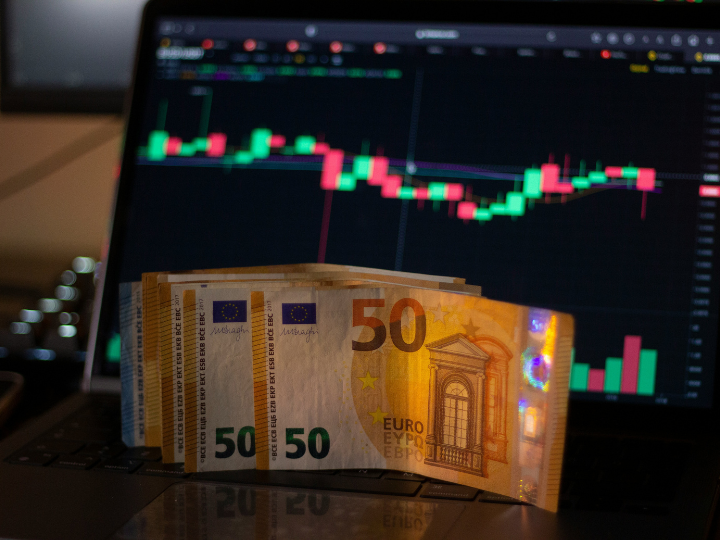by Georgi Gotev
“It’s the economy, stupid.” The phrase was coined by American political consultant James Carville in a TV quip in 1992 when he was advising Bill Clinton in his successful run for the White House.
In 2023, as the EU prepares for European elections in June 2024, fixing the EU’s economy is emerging as the number one priority, eclipsing other issues such as the support for Ukraine or the renewed Middle East tensions.
As the Financial Times reported on 4 November, a recently emerged consensus in the European Commission around the need for the Union to regain its competitive edge brought the return of Mario Draghi to the EU scene.
The former European Central Bank Chief, famous for his “whatever it takes” speech, which marked a turnaround in the European sovereign debt crisis, was tasked with producing a report on the state of EU competitiveness and how to fix it.
Simply put, the 27-member EU has a population of 420 million, while the US has 332 million. But the EU economy today represents 65% of the US economy, while ten years ago, the EU economy was equal to 91% of the US economy.
Indeed, 10 years ago, the UK was part of the EU, but the widening gap tendency is clear.
With the internet revolution, the US took a giant leap forward as major conglomerates such as the GAFA gained global influence. In China, giants such as Alibaba also emerged, while nothing worth mentioning happened on the EU side. Today’s fears are that AI will further widen the gap between the EU, the US, and China.
Ahead of US President Joe Biden’s meeting with his Chinese colleague Xi Jinping tomorrow, Washington called it a meeting of the “world’s two largest economies”. Two years ago, China surpassed the aggregated EU economy and has plans to be the number one world economy by 2030.
Why are we in decline?
Analysts point out the lack of cooperation between EU innovators, companies, and finance, bureaucracy, the regulatory burden mostly related to the ‘Green Deal’, and state aid aimed at improving the competitiveness of national economies inside the EU, rather than EU competitiveness at the global scale.
This probably means that the worst enemy of the European Union has been the European Commission in its present form.
Another former Italian prime minister, Enrico Letta, has been tasked with producing a report on the state of the internal market.
In an interview with Euractiv, Letta said that he fears that Europe is undermining its single market: “The explosion of state aid that we have witnessed due to the crises in the past years is worrying.”
“We cannot go back. COVID and [Russian President Vladimir] Putin have changed the picture so that we have to go forward.”
And for Letta, going forward means “going European”.
In a more recent interview for FT, Draghi said: “Either Europe acts together and becomes a deeper union, a union capable of expressing a foreign policy and a defence policy, aside from all the economic policies?.?.?.?or I am afraid the EU will not survive other than being a single market.”
Speaking about competitiveness, he said:
“Where we need to get our act together is energy. We are going nowhere paying energy twice or three times what it costs in other parts of the world.”
Let’s be honest: If the EU economy doesn’t pick up, this will be the end of the EU as we know it, it will be the last goodbye to what Letta calls “Europe puissance”.
Europe has too long depended on the United States for its defence, China for its economy, and Russia for its energy, and it learned about its dependencies the hard way.
“Thanks” to COVID, the EU realised it should reduce its dependence on China.
“Thanks” to Putin’s invasion of Ukraine, it understood it should cut its hydrocarbon dependence on Russia.
With the US elections approaching, marked by a strong hypothesis that Donald Trump will return to the White House, the EU hopefully recognises it should become much more autonomous in terms of defence.
Only now, the EU has a very short time to get rid of its dependencies.
The EU has had difficult moments in its history, but it has never faced challenges amounting to an existential crisis of this magnitude.
The upcoming European election campaign provides an opportunity to focus on these common European challenges. That said, we know that the campaigns are usually overwhelmed by the national nitty-gritty.
But our countries will never be successful as nations if our union continues its decline. The EU needs reform, including treaty change. But more than everything, it needs people’s support for these reforms because we are (still) democracies.
The EU, being a beacon of democracy, has for many years been an irritant globally. Yes, the peaceful, stable, and prosperous EU has enemies, and their most effective way of attacking us is by undermining our democracies.
*first published in: Euractiv.com




 By: N. Peter Kramer
By: N. Peter Kramer
